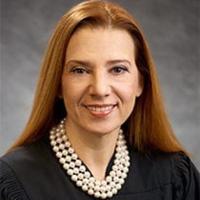
Agua Caliente Band of Cahuilla Indians operates a casino in Palm Springs.
SACRAMENTO - A new state law that gave Native American tribes the right to sue cardrooms for operating “banked” games such as blackjack is preempted by a federal law regulating gaming on tribal lands, a Sacramento County judge has decided.
Judge Lauri Damrell finalized her decision on Oct. 10 in what observers viewed as a legal victory for the state’s cardrooms. Damrell affirmed a tentative decision in August that dismissed the legal complaint filed by the Agua Caliente Band of Cahuilla Indians in Palm Springs and other tribes.
Senate Bill 549, which was signed into law by Gov. Gavin Newsom in the fall of last year, gave the tribes the chance to sue card rooms to resolve a long-simmering dispute about whether the cardrooms can legally offer blackjack-type games without violating tribal casinos' exclusivity rights. But Damrell concluded that the federal Indian Gaming Regulatory Act (IGRA) overrules the California law.
“The cardroom defendants’ demurrer is sustained on the ground that SB 549 is wholly preempted by IGRA, severance cannot resolve preemption as to any of (the) plaintiffs’ claims and the court lacks jurisdiction over this action,” the Oct. 10 opinion states.
California Gaming Association President Kyle Kirkland said he was encouraged by Damrell’s decision.
“Cardrooms for many decades have proudly operated lawful games with full transparency and stringent oversight by the office of the attorney general of the state of California and the California Gambling Control Commission,” Kirkland said in a statement emailed to the Southern California Record. “... Our member cardrooms will continue to support good jobs, vital public services and local economies across California while upholding the highest standards of integrity, accountability and compliance."
The cardrooms view SB 549 as special-interest legislation that provides tribes with a cause of action to sue any cardroom for offering “banked” games – even though the games have been approved by the state Department of Justice. The measure allows tribes to bypass the authority of tribal-state compact proceedings, which are governed by the federal government, the defendant cardrooms argued.
The plaintiff tribes, however, are moving to appeal Demrell’s opinion.
The tribes have argued that SB 549 has been narrowly tailored and concerns only games operated by non-tribal gaming entities on non-tribal lands. As a result, the measure falls outside of the IGRA process, the tribes said in arguments before the Superior Court.
In addition, they stress that the cardrooms’ operation of games such as pai gow poker runs contrary to the exclusive rights the tribes won during compact negotiations with the state and that the cardrooms’ actions have diminished their revenues.
Whereas the tribal casinos have the exclusive right to act as the bank when operating card games, the cardrooms hire what are called third-party proposition players (TPPPs) – independent entities licensed by the state – to act as the bank by paying winners and collecting money from losers.
“The court is mindful that previous efforts to resolve this longstanding dispute – whether through regulatory action, legislation, ballot initiatives or litigation – have been unavailing,” Demrell said, adding that federal law limits what a state court can do to resolve the matter.






